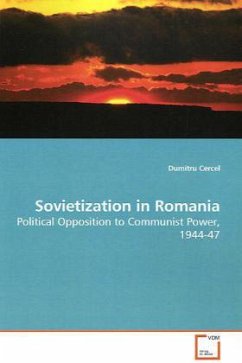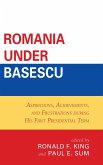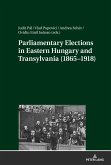The end of the Cold War and the gradual opening of
the archives in the former Communist countries made
it possible for researchers to begin writing the
history of the era from a wider perspective. This
work on the imposition of Communism on Romania by
the Soviet Union at the end of World War II is based
on archival documents, memoirs, diaries and
secondary sources. It describes and analyzes the
opposition parties struggle to prevent the seizure
of power by the Communists and the transformation of
Romania into a totalitarian state. The work examines
the pre-1989 views on the period and contrasts them
with new interpretations of scholars who had the
opportunity to work in the newly opened archives. It
also analyzes the repressive means and methods used
by the Communists against the main parties in order
to abolish them and imprison their leaders. The findings of this study are to some extent mixed. It
concludes that many of the views of the Cold War era
were to some extent confirmed by documents from the
previously closed archives. Yet, there are some new
and old interpretations that are contradicted by the
evidence presented in this work.
the archives in the former Communist countries made
it possible for researchers to begin writing the
history of the era from a wider perspective. This
work on the imposition of Communism on Romania by
the Soviet Union at the end of World War II is based
on archival documents, memoirs, diaries and
secondary sources. It describes and analyzes the
opposition parties struggle to prevent the seizure
of power by the Communists and the transformation of
Romania into a totalitarian state. The work examines
the pre-1989 views on the period and contrasts them
with new interpretations of scholars who had the
opportunity to work in the newly opened archives. It
also analyzes the repressive means and methods used
by the Communists against the main parties in order
to abolish them and imprison their leaders. The findings of this study are to some extent mixed. It
concludes that many of the views of the Cold War era
were to some extent confirmed by documents from the
previously closed archives. Yet, there are some new
and old interpretations that are contradicted by the
evidence presented in this work.








